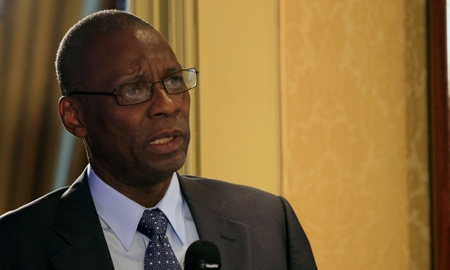The global economic crash of 2008 had a devastating effect on the Nigerian banking industry, leaving it in a critical condition. It became heavily burdened by a number of problems. The banks were left with a crippling amount of non-performing loans (NPLs), with the NPL ratio in a number of banks as high as 60 per cent.
The tumultuous state of the banks meant that they were reluctant to lend. As the credit line dried up, Nigeria’s real economy began to suffer greatly. The stock market declined up to 60 per cent from its pre-crash highs of early 2008.
The Central Bank of Nigeria (CBN) had identified that eight of the country’s banks were in a grave financial condition, and subsequently injected N620 billion ($3.9 billion) in an attempt to keep them afloat. Confidence in the sector was at an all-time low. These events marked the all out failure of top-level management at the banks, leaving the CBN no choice but to hire interim managers to run them. Due to the loss of confidence and the global economic downturn, the foreign credit line was withdrawn from a number of the country’s banks.
“AMCON’s intervention saved 90 per cent
of the jobs in the banking sector.” “By injecting liquidity into the banks we have helped the
banking system so
they can make loans
in the real economy.” Mustafa Chike-Obi,
Managing Director and
CEO of AMCON |
The need for urgent resolution was clear, leading to President Goodluck Jonathan, with the assistance of the CBN and the Ministry of Finance, to establish the Assets Management Corporation of Nigeria (AMCON). The organisation was the mechanism they envisioned that would take the country’s banking sector off life support.
Under the successful leadership of Mustafa Chike-Obi, Managing Director and CEO of AMCON, it has so far proved to be the principal revitalising force of the Nigerian banks, and ultimately the country’s economy.
“AMCON has become the best thing that has happened to Nigeria’s financial economy,” wrote Odilim Enwegbara, an international financial analyst from Nigeria.
“AMCON’s intervention saved 90 per cent of the jobs in the banking sector,” Mr Chike-Obi states earnestly.
President Jonathan has listed AMCON amongst his proudest achievements.
However at the beginning, the role of AMCON was unclear to some in Nigeria. Mr Chike-Obi recalls: “People thought we came to take over the banks, not knowing that we intervened to prevent Nigerian banks from collapsing and helping depositors from losing their money.” At the time, the general perception was that depositors’ funds in a number of banks were at risk.
The proof of AMCON’s successful intervention is certainly on paper. By acquiring the Nigerian banks’ NPLS, it has managed to take 80 per cent of NPLs out of the system.
“What our banks went through was the same thing that other banks all over the world have gone through; it is part of a cycle. Through more stringent regulatory measures, we are trying to make sure that the banks’ NPLs do not exceed 5 per cent,” Mr Chike-Obi said in an interview in November 2011. Now most of the banks are under 5 per cent ratio.
The total assets of banks grew significantly, by 35 per cent between 2009 and 2011.
In a progress report released by President Jonathan’s administration, it states: “Several banks fell short of the CBN capital adequacy ratio pre-AMCON. Following AMCON’s intervention, all the banks in Nigeria now have positive capital adequacy ratio…[the] injection of funds by AMCON into the banks have improved their liquidity thereby enabling them to concentrate on their core business of lending.”
Between 2009 and 2011, liquidity growth was 60 per cent and the banks’ deposit base grew by 26 per cent during the same period.
Now, confidence in the system has been restored, and AMCON’s CEO assures that the Nigerian banking sector is very sound, and adds: “By injecting liquidity into the banks we have helped the banking system so they can make loans in the real economy.”
Considering the success story that AMCON has been, and the praise being heaped upon it, it is ironic that Mr Chike-Obi’s outright objective is to see its dissolution. The hope is that one day there will no longer be a need for it. “I just want to make sure that it achieves what it is designed to do and becomes a smaller part of the Nigerian economy. I would love to be redundant as quickly as possible,” he says.

1 COMMENT
Mr. Chike Obi is doing a very good job!! Great article, hopefully our "bad bank" in Spain does something similar to this of Amcon in Nigeria.